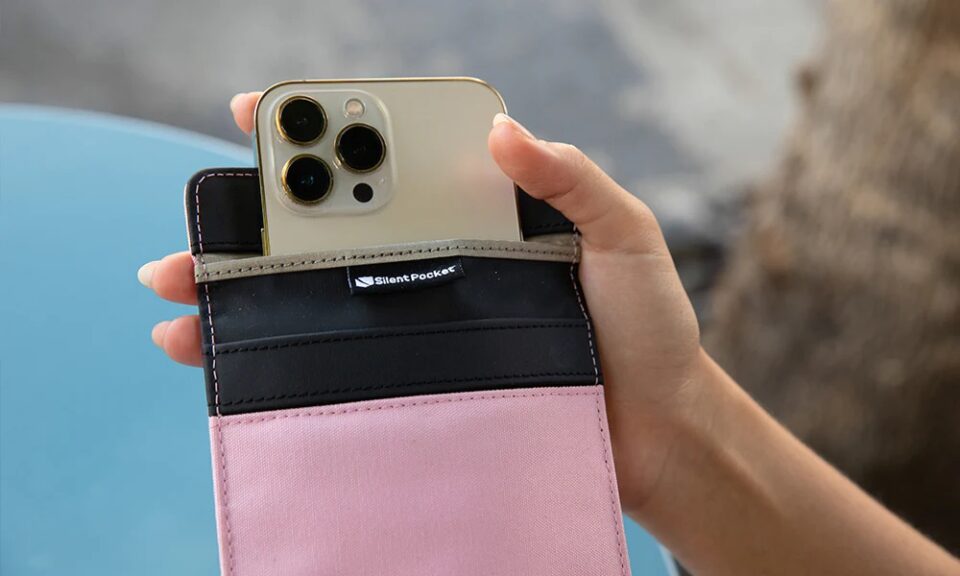In today’s digital age, mobile devices have become a part of ourselves.. They save massive amounts of personal information such as contacts, messages, photographs, and location history. However, being always linked implies that they leave a thorough digital imprint. In this data-driven age, Faraday phone cases are an efficient solution to protect your privacy.
What exactly are Faraday Phone Cases?
Faraday phone cases are phone coverings that are specially designed to prevent electromagnetic fields (EMFs). They are named after Michael Faraday, an English scientist who developed the Faraday case effect in 1836. A Faraday case is a conductive material or mesh enclosure that prevents external static and non-static electric fields from penetrating.
Faraday phone cases operate on the same premise. They have conductive linings or mesh incorporated into the casing material. Wireless signals such as cell phones, Bluetooth, WiFi, and GPS are not allowed to pass through. When one puts their phone inside a Faraday enclosure, it effectively disconnects from wireless networks and location services. It disables any wireless data transmission or reception to or from the phone.
Protecting Location Privacy
Location data has become one of the most sensitive sorts of personal information in today’s environment. Apps and services continuously track your location via GPS, WiFi, Bluetooth, and cellular signals. This location history exposes a great deal about your everyday habits, routines, and personal relationships.
When wireless signals are shielded by a Faraday phone case, your phone’s location can no longer be passively tracked. Apps and services will be unable to obtain real-time GPS coordinates or passively detect the location of your phone via neighboring wireless networks. It protects your privacy by preventing unwanted location data gathering and use.
Alternative Applications for Faraday Technology
Faraday cases, while mostly employed for cell phones, have additional applications:
Secure Document Storage
Portable document pouches or briefcases made of Faraday fabric allow confidential papers to be safely stored in public places without worry of wireless data theft.
Medical Device Protection
Wireless interference can affect some implanted medical devices. Faraday shielding protects them and prevents wireless functionalities from being hacked.
Countermeasures for Surveillance
Temporary Faraday tents or covers can prevent hidden cameras, microphones, or IMSI catchers from wirelessly monitoring private meetings and discussions.
Relief from EMF Hypersensitivity
Faraday textiles can help shield living/workplaces from wireless signals like WiFi that may induce symptoms in those who are sensitive to electromagnetic radiation.
As wireless connectivity expands fast into new domains, novel applications of Faraday shielding principles are likely to arise to protect privacy, security, and well-being even in a hyper-connected society.
Defending Against Wireless Spying
Another significant advantage of Faraday enclosures is the protection they provide against wireless snooping and surveillance. Devices grow more vulnerable to wireless hacking and eavesdropping as they become smarter and more connected, thanks to techniques such as Bluetooth scanning, WiFi packet sniffing, and IMSI catchers.
Data Security in Public Places
Airports, cafes, and co-working spaces have all become hotspots for wireless data theft and cybercrime activity. Hackers may now intercept wireless transmissions from unsuspecting users more easily than ever before, thanks to the rise of rogue access points and malware.
In public places, you can protect your device from wireless weaknesses by utilizing a Faraday phone case. Until the case is opened, all data transfers and interactions with apps/websites will be suspended. It serves as a portable “security vaults” that protects important conversations, logins, banking operations, and other personal information from potential wireless threats in open networks.
Conclusion
As technology advances, so do the dangers to online privacy and security. Faraday phone cases offer a simple yet efficient way to protect important data and conversations from wireless dangers. They give customers portable control over location monitoring, wireless snooping, and data theft in public settings by blocking wireless signals both inside and outside. Faraday cases, while not a perfect solution, are a useful privacy tool for the digital age when utilized wisely based on individual threat models. Users can stay safer in the ever-changing wireless ecosystem with their assistance.

